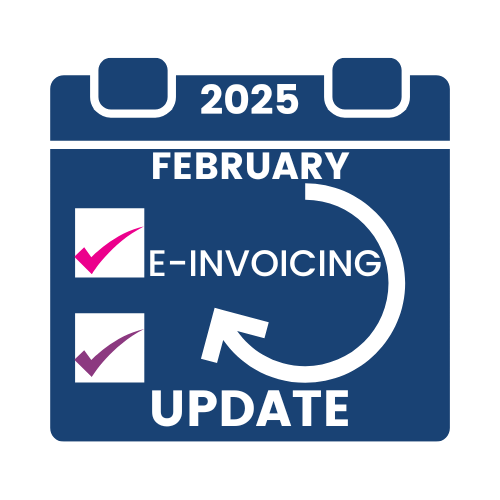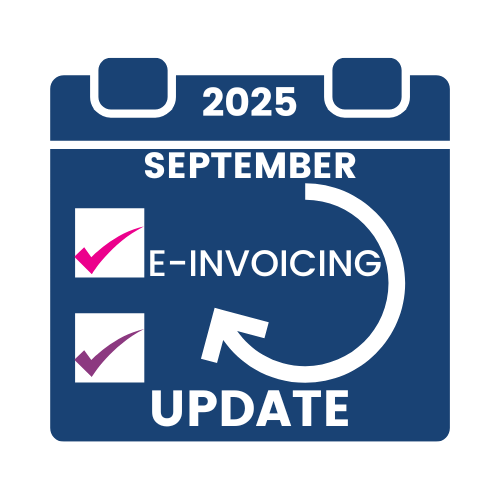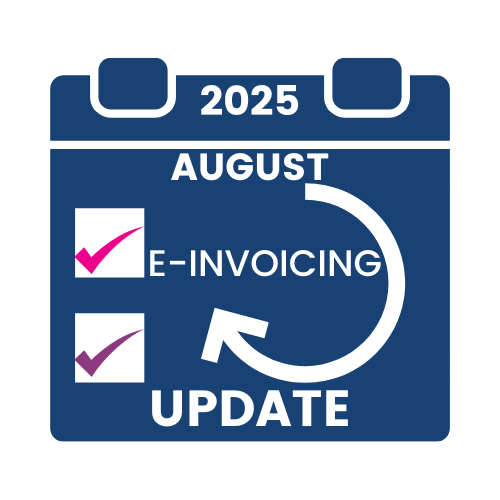Morocco
Morocco is set to implement e-invoicing in 2026, marking a significant step in its digital transformation. The General Directorate of Taxes (DGI) is leading this initiative, and the Moroccan software engineering firm xHub has been selected as the technological partner.
Saudi Arabia
ZATCA established wave 19 of taxpayers in the scope of Phase 2. The nineteenth wave of taxpayers will have to integrate with the FATOORA platform no later than September 30, 2025.
ZATCA announces extension to grace period for e-invoicing fines and penalties. ZATCA has again extended the period for which taxpayers can be exempted from fines and penalties. The extension will last until June 30, 2025. Taxpayers must register, submit unified returns, and pay principal tax debts to benefit from the exemption.
Greece
Greece is likely to mandate e-invoicing for B2B transactions in 2025. The European Commission proposed to permit Greece to mandate e-invoices in the business sector.
Italy
Cross-border VAT exemption regime for small businesses. On December 30, 2024, the Italian Revenue Agency (Agenzia delle Entrate) published a new Provision implementing a cross-border VAT exemption regime harmonizing with the EU’s cross-border SME scheme. The aim is to facilitate small businesses by reducing administrative burdens, along with supporting growth and development in cross-border trade within the European Union.
Cambodia
Cambodian government announces launch of new e-invoicing system. Aimed at digitalizing tax processes and thwarting tax evasion, Cambodia has launched an e-invoicing system. Currently, the plan is to expand the voluntary use of the system during 2025.
Paraguay
New taxpayer groups must comply with the e-invoicing mandate in Paraguay. As of March 3, 2025, the obligation to issue all tax documents electronically for a new group of taxpayers begins.
Vietnam
New VAT Law becomes effective from July 1, 2025 in Vietnam. A new Value Added Tax Law will come into effect on July 1, 2025, replacing existing VAT Law No. 13/2008/QH12 and its amendments. The new VAT Law simplifies the regulatory framework and brings significant changes, such as broadening the taxpayer definition, increasing the VAT exemption threshold, and redefining the VAT rates for certain goods and services.
Hungary
Hungary has recently amended two decrees to enforce energy and gas suppliers to issue only e-invoices. Initially, energy and gas suppliers were supposed to start issuing only e-invoices from January 1, 2025. However, after the amendments to Government Decree No. 273/2007, which mandates energy traders to issue only e-invoices (Section 21/B), and Government Decree No. 19/2009, which mandates gas suppliers to issue exclusively e-invoices (Section 115/E), such entities must now comply with this requirement as of July 1, 2025.
Uruguay
Uruguay aims to implement a personalized VAT regime. The Ministry of Economy has started discussions to move forward with developing a personalized value-added tax regime.
Egypt
Egypt is taking further steps to automate tax collection. On January 9, 2025, The ETA announced that a new group of taxpayers would be obligated to issue e-receipts in B2C transactions.
Norway
E-invoicing in the business sector is on the horizon in Norway. To fuel competitiveness in the private sector and curb financial crime, the Norwegian Ministry of Finance has initiated an investigation of digital bookkeeping and electronic invoicing requirements for businesses.
Croatia
On January 23, 2025, the Ministry of Finance confirmed at a conference in Zagreb that the following tax reform package, “Fiscalization 2.0”, is in its final stages of development. A legislative package is being prepared and will soon be opened for public consultation. As previously announced, the new tax measures are expected to enter into force in 2026.
India
Introduction of E-Way Bill (EWB) for gold in Kerala state. A new option for generating E-Way Bills for gold was added to the EWB system, becoming effective from January 20, 2025. The feature excludes the generation of EWB for imitation jewelry and applies only to the intrastate movement of those goods within Kerala. For imitation jewelry goods, the taxpayers can continue generating EWB using the usual option in the system.
Belgium
The new Belgian Federal Government has now agreed on pressing matters regarding VAT, with the intention to implement near real-time transaction reporting requirements by 2028. This marks yet another stride made by Belgium in its attempts to combat tax evasion. The new obligations are expected to complement the fast-approaching e-invoicing obligations set to begin in January 2026.
Germany
Bavaria is to adopt a single point of contact for e-invoicing exchange soon. Although public entities in Bavaria have been obliged to receive e-invoices since 2020, it has been done in a decentralized manner, i.e., invoices have been delivered to the end recipient by either paper or e-mail. This is about to change with the upcoming introduction of a centralised platform.
United Arab Emirates
The UAE MOF of Finance has issued an e-invoicing consultation paper open for feedback from all interested stakeholders until 27 February 2025. This input will be crucial in shaping the future of e-invoicing in the UAE. The documentation clarifies the path forward, confirming the use of the Peppol network and the Peppol (PINT AE) format in a 5 Corner model approach.
Liechtenstein
Since January 2025, businesses in Liechtenstein must handle all VAT-related transactions exclusively through the new eVAT portal. The transition was officially announced in the government’s press release on October 30, 2024, outlining the new eVAT portal’s functionalities, such as VAT registration, deregistration, billing (including corrections), applications, and account information. The tax administration accepted paper VAT returns until December 30, 2024, after which the eVAT portal became the sole submission method.
Pakistan
Pakistan introduces new Sales Tax e-invoicing rules. The Pakistani government has issued new amendments to the Sales Tax Rules, 2006, mandating electronic sales tax invoicing for all registered persons.
Jordan
Jordan continues moving forward with the implementation of e-invoicing phase 2. The Ministry of Finance and Sales Tax Department recently announced that phase two would take place on April 1, 2025.




